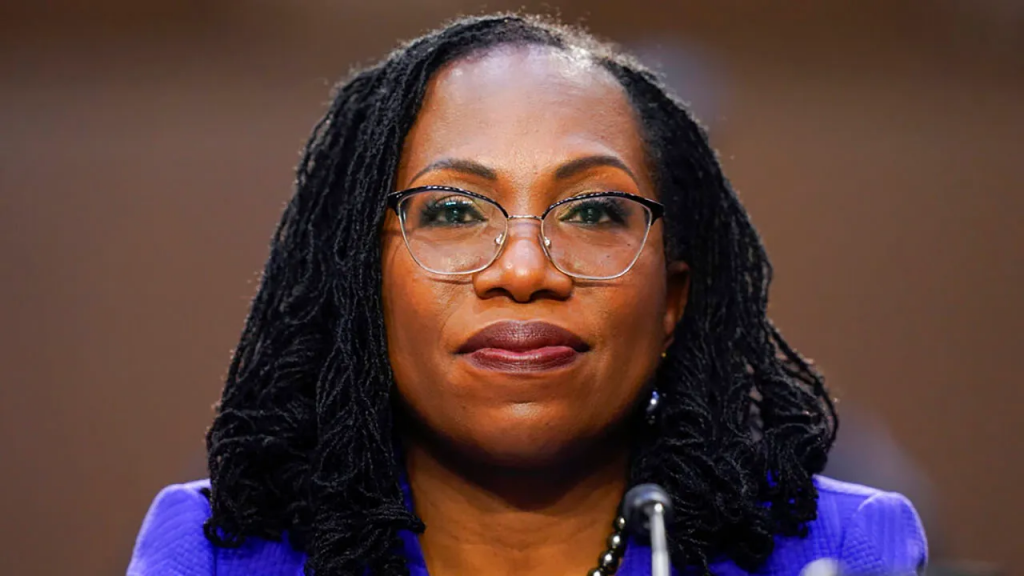Ketanji Brown Jackson: A Change In The Supreme Court
James Rogers, an associate professor in the Department of Political Science, discusses what the future may hold for the first Black woman nominated to the Supreme Court.

By Tiarra Drisker ‘25
On February 25, President Joe Biden announced his intention to nominate Ketanji Brown Jackson for the position of Associate Justice of the Supreme Court of the United States. Jackson is the first Black woman to be nominated to the Supreme Court, but that’s not the only thing that sets her apart; she would also be the only Supreme Court Justice to have served in a role where she could not pick who she represented due to her prior experience as a public defender.
James Rogers, an associate professor in the Department of Political Science, provides insight on possible changes Jackson’s nomination may bring to the Supreme Court in this Q&A that’s been condensed and edited for clarity.
How does Jackson’s history as a federal public defender prepare or not prepare her for a role as a Supreme Court Justice?
All legal experience prior to appointment as a Supreme Court Justice serves as preparation for the office. Judge Jackson’s three years as a federal public defender provides her on-the-ground experience with criminal process and criminal law, including, most importantly, with the informal back and forth of the plea-bargaining process that resolves most criminal cases before they go to trial.
How would Jackson’s identity as a Black woman impact her possible role as a Supreme Court Justice?
Unlike Congress, the U.S. Supreme Court is not set up as a representative institution. If nothing else, with only nine seats on the Court, it is incapable of serving as a truly representative institution. The idea is that Supreme Court justices read and apply statutes, rules, precedents, and the Constitution in a way that all people can understand, even if they do not agree. At the same time, justices are people, too, and, like the rest of us, their backgrounds can lead them to highlight or underscore different aspects of what they perceive when they read and apply legal texts to real cases.
Judge Jackson’s experiences as a Black woman endows her with experiences unique to the current Court. In the Court’s deliberations, Judge Jackson will naturally bring her experiences, and unique insights prompted by those experiences, to those deliberations, as do the other justices.
What qualifications does Jackson have that could help her as a Supreme Court justice?
Judge Jackson has had a distinguished career as judge and attorney. She served as a Federal district judge from 2013 until 2021. Judge Jackson became a judge for the U.S. Court of Appeals for the D.C. Circuit last year. Before she became a judge, Judge Jackson served as a vice chair on the U.S. Sentencing Commission, and earlier had served as assistant special counsel to the Commission. Judge Jackson also served for several years as a Federal public defender, and worked in private legal practice on and off between her governmental service. All legal experience provides background on which Supreme Court justices draw. Most notably, Judge Jackson’s experience as a district judge, and even her much shorter experience as an appellate judge, gives her experience on which she will undoubtedly draw as a Supreme Court justice.
Why have presidents previously avoided nominating public defenders for this position?
All judicial appointments at the Federal level, including Supreme Court appointments, come from the political branches of the U.S. government: appointment by the president with the advice and consent of the U.S. Senate. Often ignored is that potential Supreme Court justices need to be visible to these politicians in order even to get on lists of potential nominees. Public defenders often simply do not have the visibility before national-level politicians that other lawyers have. Further, their job defending people accused of crimes means their constituency does not have ready access to elected corridors of power.
What can and can’t Jackson do to change the court’s balance?
The U.S. Supreme Court has a total of nine justices who decide cases. As with any voting body, it is the middle — or median — voter who controls the outcome of cases, because it is the middle voter who controls the pivotal vote that can make a majority of five justices. Judge Jackson will, if confirmed, replace Justice Breyer. Justice Breyer is considered on the liberal or moderate liberal wing of the Court. Justice Breyer is not currently the median justice on the Court. (The median justice in most cases on the Court today is either Amy Coney Barrett or Brett Kavanaugh, and occasionally John Roberts.) Judge Jackson is likely at least as liberal as Justice Breyer, and perhaps more so. As a result, adding Judge Jackson to the Court will not move the position of the median justice, and so will likely have little systematic impact on the Court’s balance. That said, non-median justices can influence the median justice in cases as they deliberate on cases. Judge Jackson’s unique experience and background may prove occasionally decisive in cases.
What is significant about Jackson’s nomination?
With only nine justices on the U.S. Supreme Court, and with the Court being a court of final jurisdiction — meaning it is the highest court in the U.S. appellate process — every appointment to the Court is significant. Even if Judge Jackson is not a pivotal justice today, given the vagaries of membership on the Court, membership continues to change over the years. Political scientists also talk about “descriptive representation.” While the U.S. Supreme Court is not intended as a representative body, people still look at justices and see, or do not see, a justice who mirrors some of their demographic characteristics. Judge Jackson’s identity as a Black woman adds to the diversity of the Court’s “descriptive representation.” This can increase a sense of inclusion in government processes, even when the institution, like the Supreme Court, is not a formally representative institution.
